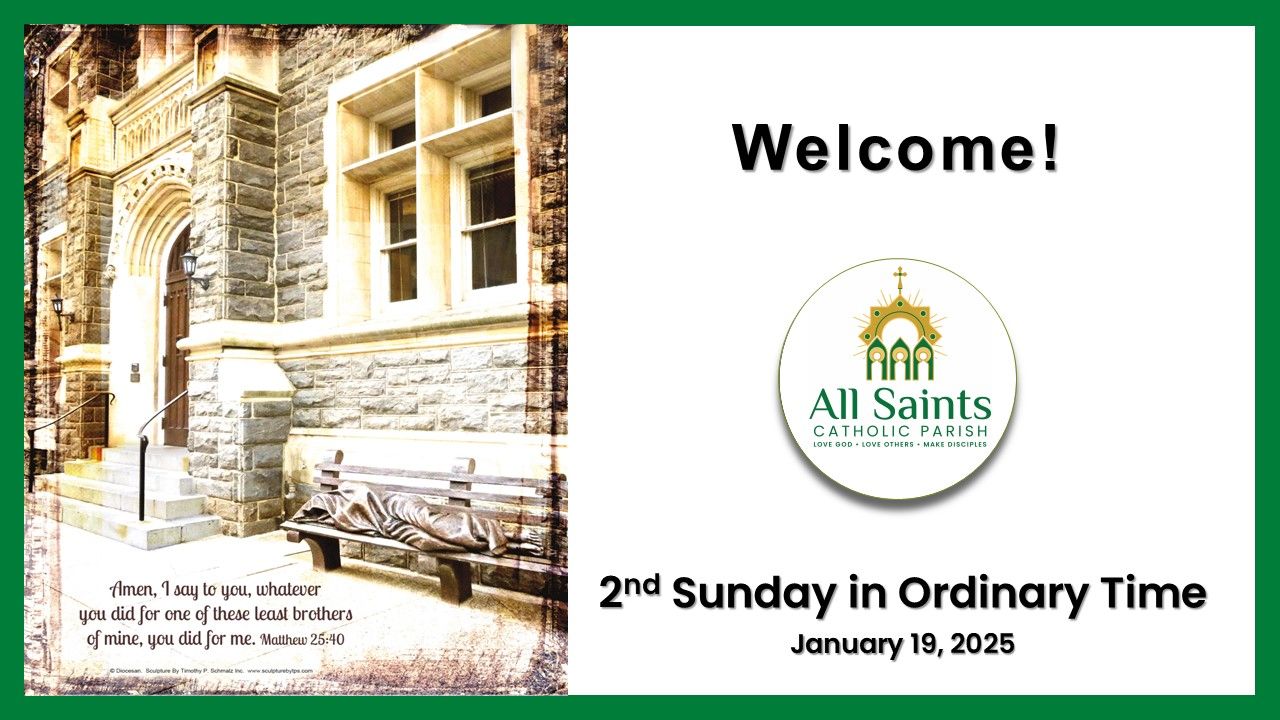Homily February 23, 2025
Homily, “Do unto others as you would have them do to you” 7th Sunday in Ordinary Time

7th Sunday in Ordinary Time
1 Sam 26:2, 7-9, 12-13, 22-23; 1 Cor 15:45-49; Luke 6:27-38
Weren't the readings we heard last week challenging enough? "Blessed are the poor." This weekend, it's "love your enemies." On this seventh Sunday, the Church reminds us of the essential virtues and elements of our Christian life. They include mercy and compassion, love of God and neighbor, self-control, appreciation of values, moral responsibility, and awareness of sin. These are marks of our spiritual progress and Christian growth. Also, they form part of the church’s social doctrine.
Today’s first reading is rather dramatic. David had the death warrant of his enemies in his hands, yet he refused to pronounce it. Instead, he left it for God to pronounce in his way and at his appropriate time. He heeded God’s word: “Do not repay anyone evil for evil. Do not take revenge. Vengeance is mine” (Rom 12: 17-19; Deut 32:35).
And in today’s Gospel, Jesus gave a very important sermon on these essential virtues and elements that must guide our lives and actions as Christians. It is a new commandment because it overrules the Old Testament law of reprisal attack or retributive justice. Humanly speaking, it is a very difficult one. It demands a lot of sacrifice and courage.
So, how do we reconcile our constant quest for justice with the virtues of mercy and compassion? Is there any common ground between them? When somebody wronged or hurt us, we usually have only one thing on our mind --- getting even. Quid pro quo. An eye for an eye., a tooth for a tooth. On the surface, it makes perfect sense. It is almost a kind of survival instinct that seems to be hard-wired in us.
The second-weekday preface of the Eucharistic (II) prayer gives us a clue to this problem. It says, “In justice, God condemned us. In mercy, he redeemed us.” Yes, it is what it is. Contrary to what our society has programmed us to believe, justice and mercy are not mutually exclusive. Jesus challenges us:
“Do unto others as you would have them do to you”
Hurts and wounds do not heal so fast. In some cases, their scars do not disappear entirely during one’s lifetime. However, Christ knew this perfectly well. He not only preached this sermon, but he also lived it. So, he is not asking us to do what he did not do.
St Paul reminds us in our second reading that we derived our body and way of life from the earthly man (Adam). In contrast, we derived the spirit that gives life and animates our body from the heavenly man (Christ). Hence, the spirit guides those who have received Christ. They are born of the Spirit. Christ’s new commandment may seem complicated, his spirit and grace will enable us to live these essential virtues and elements of our Christian life.
So, no matter our situation or circumstance, we must not lose the sense of the sacred. We must guard against sin. Let us also remember that we cannot help God in his judgement. God knows what to do, how to do it, and the best time to do it. We must let God be God - “The Lord is merciful and kind.”
In the Lord’s Prayer, we ask God to forgive us on one condition, that we will forgive others in our turn. There is a proven power in forgiveness, mercy and love. Forgiveness is a sign of strength not weakness. Forgiveness heals all wounds and wipes all scars away.
Perhaps this week, reflect on a time when you experienced mercy.
• How did it feel to be forgiven and treated with kindness?
• Is there someone in your life who is difficult to love and to forgive?
• Pray for the grace to love the unlovable, to forgive the unforgivable and to remember in prayer those we would rather forget!
“Stop judging and you will not be judged”
“And if you love those who love you, what credit is that to you?”
Homilies











